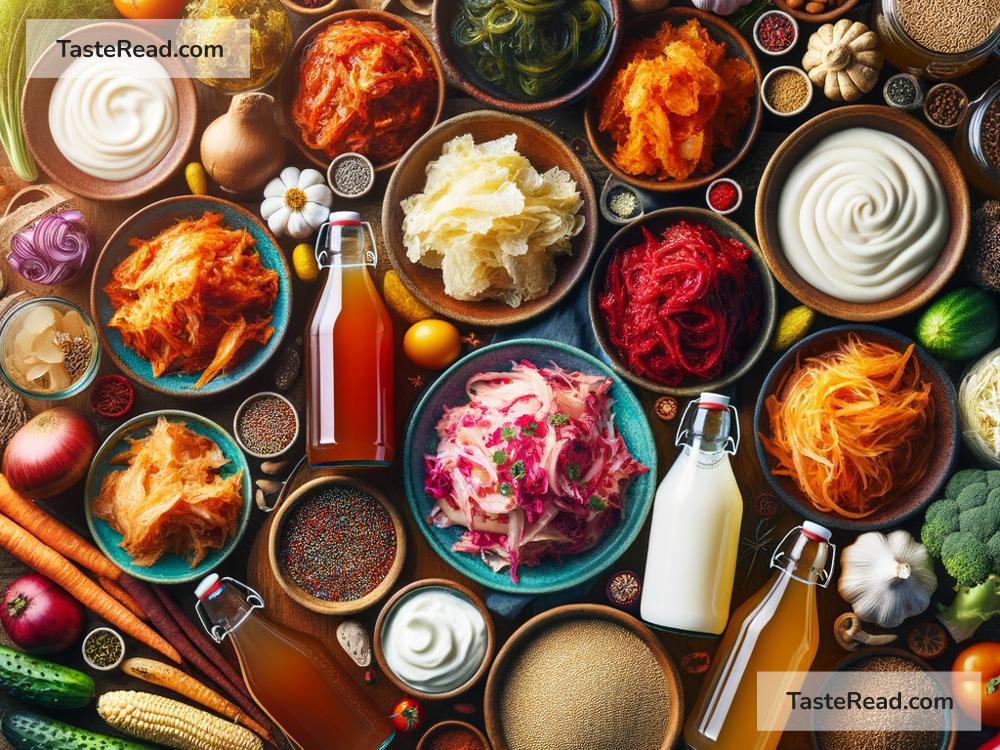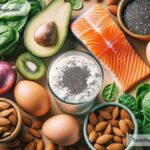Foods That Improve Gut Microbiota: A Key to Better Health
Did you know that your gut is home to trillions of tiny bacteria, viruses, and fungi working together to help keep you healthy? These microorganisms, collectively known as your gut microbiota, play a crucial role in digestion, immunity, and even your mental health. Taking care of your gut microbiota is like nurturing a little garden inside you—what you feed it can help it thrive. The good news? Certain foods can boost the good bacteria in your gut and improve your overall health.
Let’s dive into what foods help improve gut microbiota and how they work.
Why Is Gut Health Important?
Your gut microbiota helps break down food, produce essential vitamins, and protect you against harmful bacteria. A healthy gut supports your immune system, reduces inflammation, and even influences your mood. However, poor diet, stress, and antibiotics can harm your gut microbiota, leading to imbalances or “dysbiosis.” When your gut microbiota isn’t thriving, you may experience problems like bloating, constipation, fatigue, or even a weakened immune system.
Probiotics: The “Good Bacteria”
Probiotics are live bacteria that are good for your gut health. Eating foods rich in probiotics can increase the number of helpful bacteria in your microbiota, promoting balance and well-being.
1. Yogurt:
One of the best-known sources of probiotics is yogurt. These friendly bacteria, such as Lactobacillus and Bifidobacterium, help your gut stay balanced. Choose plain, unsweetened yogurt with “live” or “active” cultures for the best effect. Flavored yogurts often contain added sugar, so it’s best to avoid those.
2. Kefir:
Kefir is a fermented milk drink that’s packed with probiotics. It’s similar to yogurt but usually has more strains of beneficial bacteria. Plus, kefir is a good option for people who are lactose intolerant because the fermentation process reduces lactose.
3. Fermented Foods:
Foods like kimchi, sauerkraut, miso, and tempeh are all rich in probiotics. These foods are made through a fermentation process, which encourages the growth of live bacteria. Kimchi (a spicy Korean dish made from fermented vegetables) and sauerkraut (fermented cabbage) are great additions to sandwiches, salads, or rice bowls.
Prebiotics: Food for Your Gut Microbiota
While probiotics introduce good bacteria into your gut, prebiotics feed the bacteria already living there. Prebiotics are types of dietary fiber that your body can’t digest but the good bacteria in your gut can.
1. Bananas:
Bananas contain prebiotic fiber that feeds beneficial gut bacteria. They’re also easy on the stomach, making them a good choice if you’re dealing with digestive issues.
2. Onions and Garlic:
Both onions and garlic contain compounds that help boost the growth of good bacteria in your gut. They also have antimicrobial properties, which can help fight harmful bacteria.
3. Whole Grains:
Foods like oats, quinoa, and barley are high in fiber, which acts as a prebiotic to keep your gut bacteria nourished. Whole grains also support healthy digestion.
4. Apples:
Apples are rich in pectin, a type of fiber that feeds gut bacteria and improves digestion. Eating an apple a day may really help keep your gut happy!
Fiber-Rich Foods: Feeding Your Gut
Fiber is a key player in gut health. It adds bulk to your stool, promotes regular bowel movements, and supports the growth of healthy bacteria. Most people don’t eat enough fiber, so incorporating fiber-rich foods into your diet can make a big difference.
1. Vegetables:
Leafy greens like spinach, kale, and broccoli are high in fiber and other nutrients that promote healthy gut bacteria. Sweet potatoes and carrots are also fiber-rich options.
2. Beans and Lentils:
These plant-based protein sources are packed with gut-friendly fiber. They also contain resistant starch that acts as food for your microbiota.
3. Nuts and Seeds:
Almonds, walnuts, chia seeds, and flaxseeds provide high-quality fiber and healthy fats that support gut health.
Polyphenols: Antioxidants That Support Gut Health
Polyphenols are compounds found in certain foods that act as antioxidants and can improve gut flora.
1. Berries:
Blueberries, strawberries, and raspberries are rich in polyphenols that may stimulate the growth of good gut bacteria.
2. Dark Chocolate:
High-quality dark chocolate (at least 70% cocoa) contains polyphenols that can improve gut health. Remember, moderation is key!
3. Green Tea:
Green tea is another excellent source of polyphenols. Drinking it regularly can support your gut microbiota and provide other health benefits.
What to Avoid for a Healthy Gut
Just as there are foods that nurture your gut, there are also foods that can harm it. Processed foods, sugary drinks, and artificial sweeteners can disrupt gut microbiota, leading to imbalances. Reducing your intake of these foods can go a long way in supporting gut health.
Simple Tips to Improve Gut Health
- Eat a diverse range of foods to ensure you’re feeding different types of bacteria.
- Include fermented and fiber-rich foods in your meals.
- Stay hydrated—water helps with digestion and overall health.
- Avoid antibiotics unless absolutely necessary, as they can harm beneficial bacteria.
Conclusion
Improving your gut microbiota isn’t complicated—it all starts with choosing the right foods. By adding probiotics, prebiotics, fiber, and polyphenols to your diet, you can help your gut flourish. Over time, these changes can improve digestion, boost immunity, and even enhance your mood. Treat your gut well, and it will take care of you!
So, the next time you sit down to eat, think about how your meal can nourish your gut microbiota. Small changes can lead to big health benefits!


